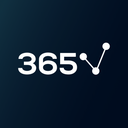How to land an entry-level data scientist job?
As one of the fastest-growing industries over the last decade, data science has become an extremely appealing career path.
That path, however, needs to start somewhere.
So, if you are reading this article – you’ve got questions. And we are here to give you the answers.
We’ll go over education, experience, and skills. You'll learn about the importance of networking and making a good impression during the job interview.
Finally, we’ll outline a cohesive plan of the steps you need to take to start your journey as an entry-level data scientist.
(In addition, we've included some extra resources to help you prepare for a successful entry-level data scientist job.)
Of course, all the information is based on empirical research, statements by employers in data science... And a dash of our personal experience. If you re up for learning the brass tracks of ta science, you could watch our course Introduction to Data and Data Science.
Let’s begin, shall we?
What Education Do You Need to Get an Entry-Level Data Scientist Job?
In previous articles on our blog, we’ve discussed the best degrees for an aspiring entry-level data scientist. To recap: any form of a post-graduate degree in a quantitative field gives you a pretty good chance of success, with Computer Science being the most-represented major.
Besides relevant education, you also need some sort of experience credentials to your name.
What’s the Required Experience to Get an Entry-Level Data Scientist Job?
According to our research, roughly 35% of current Data Scientists have already had a job in the same position. And, believe it or not, that’s actually great news.
Why?
Because it means the remaining 65% had a different occupation prior to that.
Therefore, roughly 2 out of every 3 data scientists are on their first data scientist job in the field.
So, it’s safe to say that becoming an entry-level data scientist is a very achievable goal.
However, don’t expect to become a data scientist right after school.
A mere 2% of all data scientists started off with no previous position on their resume. And even this number sounds suspiciously high to us.
So, regardless of the fact you’re aiming at an entry-level data scientist position, you still need some previous experience elsewhere.
This is a testament to how demanding nature of a data scientist position nowadays.
Demanding and hard to get, but not impossible. So…
What Are Employers' Entry-Level Data Scientist Requirements?
According to employers and recruiters, if you want to succeed in the field, you need to master three things. The tools, the data, and the business.
Let’s break this down.
The Tools
Knowing the tools means confidence in working with the most popular software on the market. Those are undoubtedly R or Python, or better yet - both.
With a bit lower priority but still extremely important are SQL and visualization software, such as PowerBI and Tableau.
Finally, it is important to note that Excel is still a main prerequisite in any job description in the field.
The Data
To be a savvy entry-level data scientist, you need to understand where your data is coming from; what are the best ways to process and pre-process it; and most importantly, how to extract actionable insights from it.
The Business
Before you apply for a job in a given company, you must find out:
- which aspects of data science are utilized in the business;
- what skills are necessary to land a position there.
That said, having market expertise in the specific field is always a bonus. So, the more holistic your understanding of the data and the industry, the more well-suited you are for the entry-level data scientist position.
What Are the Key Entry-Level Data Scientist Skills?
Overall, employers are looking for somebody with high-level coding, statistical, and analytical skills.
But don’t worry if you aren’t a jack-of-all-trades. Usually, to land an entry-level data scientist job you don’t need to excel in all categories. Being okay in 2 of the 3 is fine… as long as you’re great at programming.
Of course, employers are always looking for transferrable skills in a candidate that add value to the company, as well.
Taking initiative, setting challenging goals, and making efforts to exceed them are transferrable skills you should develop.
Interpersonal skills also translate easily across various industries and contexts. So, make sure you got that covered, too.
Other highly appreciated skills in this category include:
- the ability to learn from experience and be the propeller of positive changes;
- independence;
- self-direction;
- and accountability.
It's important to have these in your resume. So, make sure you include projects or internships where you worked with others, on top of some evidence of your proficiency in coding.
For the full list of skills, check our Data Science career guide. And, if you want to learn more about what you should and shouldn’t include in your resume, check out the 365 Data Science Resume Guide.
Why Is Networking Important to Get an Entry-Level Data Scientist Job?
In highly competitive fields, such as Data Science, who you know could be just as important as what you know. This is especially true when you’re trying to break into the field. So, do your best to find somebody who is willing to give you a chance, even at a Junior position. Getting a recommendation from your previous boss, or a referral from an employee of the company you are currently applying at, is a sure-fire way to boosting your chances of getting hired.
And the tried and tested way of getting these is through networking.
One good approach is to use Handshake and similar sites, where alumni from your school post job ads.
This way, you can find interesting potential employers who you want to interact with. Drop them an e-mail; ask them for an informational interview; give them your details; ask specific questions about what their company does. By doing so, you’re making a solid good impression because:
A) you know or you want to learn the business, and
B) you’ve done your research.
Sometimes, you won’t be able to get direct contact information through the website. In such cases, you can check out your school’s alumni directory. You should be able to find at least an e-mail, a phone number or a LinkedIn profile. And all you have to do next is reach out.
Alternatively, you can meet people in the field by going to local conferences or lectures about Data Science.
Universities and colleges frequently organize events of the sort. And they're often open to the general public. In addition, independent Data Science societies also sponsor or organize control-group meetups where they discuss the applications of D-S in specific fields – like medicine or finance, for example.
Just remember, the more invested you look, the higher the chance that these people would want to keep in touch. So, try to stay enthusiastic and curious.
Of course, knowing the right people will get you far. However, in most cases, it won’t get you the job.
Even with a referral or recommendation, you still have to go through a job interview.
How to Win the Entry Level Data Scientist Job Interview?
Your potential employers can always test your statistical skills with a written exam and your programming skills with a remote task.
But the face-to-face interview is where you present your coherent communication skills.
So, make sure you highlight them in the best possible way.
Of course, data science incorporates multi-disciplinary aspects of various fields. And it can be challenging to prepare for everything.
That is why we created a practical guide on Data Science Interview Questions and Answers. Think of this as our data science equivalent to “Cracking the Code”, albeit a little bit smaller. Once you read it, you’ll have all the knowledge and tools to succeed during the interview.
Take Your Interview Prep to the Next Level!
Try our AI-powered interview simulator! Customize your interview experience by selecting:
- Your target role
- Dream company
- Interview type (HR or Technical)
- Your background and experience level
Get instant feedback and a detailed score report after each practice session.
How to Get an Entry-Level Data Science Job: Overview
What are the steps to land an entry-level data scientist job?
- For starters, you should earn at least a graduate degree in a quantitative major like Computer Science.
- Then, you need to gain experience in a field tangent to Data Science. So, a job as an analyst or an I.T. professional is a good way to go about it. An internship is also a viable option if you’re still studying.
- Knowledge about coding, working with data and the line of work you are interested in is vital, too. Ensure your resume showcases all of that.
- In addition, try to highlight some essential transferrable skills in your resume. Drive for the business and ability to work in cross-functional teams are some good examples.
- Conduct some networking and try to earn a recommendation or referral for a specific position.
- On a final note, make sure to showcase certain soft skills you possess. These include communication skills and curiosity during the interview.
We believe following these steps will give you a great shot at securing an entry-level job as a Data Scientist.
Ready to Take the Next Step Toward a Data Scientist Career?
Sign up for our course Starting a Career in Data Science. Lead by a top-level data scientist with first-hand experience in recruiting data scientists for his team, the course will guide you through all the steps to landing a data science job. You’ll learn how to create your data science project portfolio, build your resume, get an interview through networking, succeed during the phone interview, solve the take-home test, and ace the behavioral and technical questions. Try it now!








